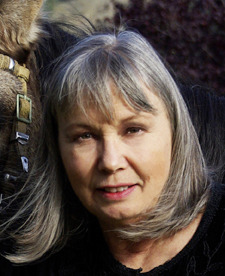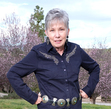The Structure of the Publishing Industry: Writers and Authors are the Children, Literary Agents Are the (Good or Bad) Parents and Publishers Call the Shots
Today, we examine the structure of the publishing industry, trying to figure out why we may feel so lousy pursuing a literary career. (Unless you’re one of the anointed few making mega-bucks with your scribblings. I doubt that feels lousy.)
We’re going to take three different points of view, which add up to very similar conclusions. My fellow authors, Ruth Harris & Anne R. Allen, wrote a great blog article about Writers’ Masochism. That refers to writers taking garbage and ill-treatment from their bosses that no one in any other industry would.
Except maybe law, our second point of view on this issue. Here’s a link an article by Will Meyerhoff, an attorney and psychotherapist. If you read Mr. Meyerhoff’s article, I think you’ll agree that the legal profession and publishing industry have much in common. Or at least people living and working in them feel similarly.
After practicing law for a period of time, Hoffmeyer discovered that depression is common in attorneys. He became a psychotherapist treating attorneys (and others). In his article, Hoffmeyer presents a psychological model explaining how depression is created and supported within the individual’s mind and by the legal industry. The depression-creating system he presents is one basis of the writer’s masochism post by Ruth Harris & Anne R. Allen. I recommend reading both for an understanding of writer’s masochism. Hoffmeyer’s description of how lower level attorneys feel in Biglaw mirrors my own feelings as a fledgling author.
Professionally, I was an economist, negotiation coach, businesswoman, and horse rancher before entering the writing field. I have a couple of Master’s degrees, including one in counseling. I took my counseling degree in a program stressing family structure and systems––how a family’s unspoken rules can work to keep some family members powerless and unhappy and allow others to be fat cats, throwing their weight around. This background served me well when I started writing seriously.
I entered the world of writing after an explosive personal experience back in 1995. I jumped into writing groups and editors and spending all day sitting at a word processor. Once I had enough quality work on paper and needed a publisher, I became acutely aware of of the structure of the literary/publication world.
At the bottom of the pyramid are hordes of wannabe authors––and they have to be published traditionally, only. Being traditionally published means: a publisher buys your manuscript according a contract, which the publisher writes and controls. You get money and they get to do whatever they want with your work, including not publishing it. If it does come out, you, the author, get to pay for publicizing it and do the work. Being traditionally published is supposed to be far superior to and more prestigious than publishing your work yourself.
I recall seeing a video of a famous author giving a seminar about writing. Her fans gazed at her with devotion normally reserved for east-Indian gurus. Rapture didn’t come close to the intensity of their focus. They were addicts, of her and of getting their work in print. Lust lived in that room.
Back to the publishing industry: Above the wannabe authors in the power hierarchy (way above) are the literary agents, gatekeepers to the hallowed realm of the publishers. The literary agents are numerous, but a tiny fraction of the wannabe authors.
Above the literary agents are the publishers, a much smaller group which hold the keys to kingdom: publication.
In this system, power flows downward: publishers have way more power than agents who have way more power than writers/wannabe authors, who have almost no power.
The publishers and agents take on the parental and adult roles in the system, doing everything good and bad parents do. Judging, evaluating, rejecting, and generally doing the naughty things described in Ruth’s and Anne’s article. This hierarchical dehumanization is part of the structure of the industry.
Very quickly, I realized that in this model, the writers/authors were trapped in a PERMANENT state of the powerless child. That’s what Ruth and Anne describe above, in talking about rotten deals and being forced to overwork and accept bad terms. This is a PERMANENT state, unless a writer gets lucky and enters the hallowed realm of the ACTUALLY PUBLISHED and her book sells like crazy. (Or unless the industry topples. It’s been shaken by the Great Recession and the eBook and self-publishing revolutions.)
Everyone in the traditional system is stuck. Literary agents and representatives of publishers are also mired in a PERMANENT state of the ADULT or PARENT. They are perennially superior to and controlling of the child/writers. Who are shoved into permanent INFANCY. This is lousy for the personal/spiritual development of everyone involved.
I have some background in addiction theory and treatment. Many of the writers I’ve known are ADDICTED to striving for the state of being published, no matter what it costs them. You can see this by the lengths to which they’ll go to get published and the worship piled on successful writers. The scene at the author’s seminar I noted above described it perfectly. This is WR in its pure form.
After querying a bit and observing the system by which one obtains literary representation closely, something inside me went, “**** this. Nobody jerks me around like this. I’m not willing to be abused.” I could not participate in the traditional system.
When I was in economics or coaching negotiations at the graduate level, professional life was different. In a “regular” profession, if you write and present a few excellent papers and do your work well, you’re treated like a valuable adult team member. Not so in publishing.
Anne and Ruth present some steps to take to reestablish oneself as a powerful individual in the writing world.
My solution was to create an independent press––a legal entity as valid as any other small press.
Some people start foaming at the mouth when anyone talks about indie-presses or self-publishing. I would like to suggest that that attitude belongs with the folks who are addicted to being published, at the cost of themselves.
People talk about the abysmal quality of self-published work. A lot of it is junk from one cover to another. But not all of it.
I’ve won twenty-one awards at contests for indie-presses. I have judged one such contest. I’m not allowed to say anything about that contest, but I will say that the best of the indie-produced books far exceeded the quality of books published by the majors.
And of course they do––the majors can’t afford to put the resources into a book that some independently-funded small presses can. Books of amazing quality won in that contest.
What is the point of this diatribe? Everyone needs to create a path which will allow him or her to attain goals, while maintaining one’s soul. Anne’s and Ruth’s article gave some suggestions. Will Meyerhoff’s article gives others.
What do I suggest? Do what works and dump what doesn’t.
I chose to create my own press. I’ve got six really great books on the market and have won multiple awards with them.
As and indie-press owner and indie-author, I work harder than even I, the achievement-addicted economist from Silicon Valley, could have predicted. Seven days a week at this point. The market is so flooded with author-produced ebooks and POD books, that making a good book show up above the deluge is difficult. How is a tastefully and impeccably produced book going to stand out among 100,000 ebooks uploaded that day? In a situation where buyers can’t see its quality through the Amazon sales page?
The bottom line is: Writing/authoring is a tough way to make a living, no matter how you do it. Is what I’m doing easier than going the traditional route? No. It is easier on my gut. All the pressure comes from my own drives and needs.
Writing can be an addiction. It certainly is for me. It’s a soft addiction, like gambling or over-spending. Twelve step programs say you have to completely give up the addictive behavior to be free of addiction.
Well, forget that. I’m struggling with what I want to do with my writing and my life. I think that reading articles like Anne’s and Ruth’s have written give perspective. I think Will Meyerhoff’s article, and the information I’ve presented on a systems view of the publishing industry can be very liberating––strengthening the writer/author and freeing him or her to make decisions that enhance the self, as opposed to denigrating it.
I’m going to take it one day at a time, noting the carpal tunnel creeping into my wrists and the shrieking of the bursitis in my hips that I got from sitting too long, and weighing them against benefits achieved.
That’s all a person can do.
Best wishes in your writing and life!

Sandy Nathan is the winner of twenty-one national awards for her writing. She’s won in categories from memoir, to visionary fiction, to children’s nonfiction. And more.
Sandy’s books are: (Click link to the left for more information on each book. All links below go to Kindle sale pages.)
Lady Grace: A Thrilling Adventure Wrapped in the Embrace of Epic Love
The Angel & the Brown-eyed Boy
Numenon: A Tale of Mysticism & Money
Tecolote: The Little Horse That Could
Stepping Off the Edge: Learning & Living Spiritual Practice



